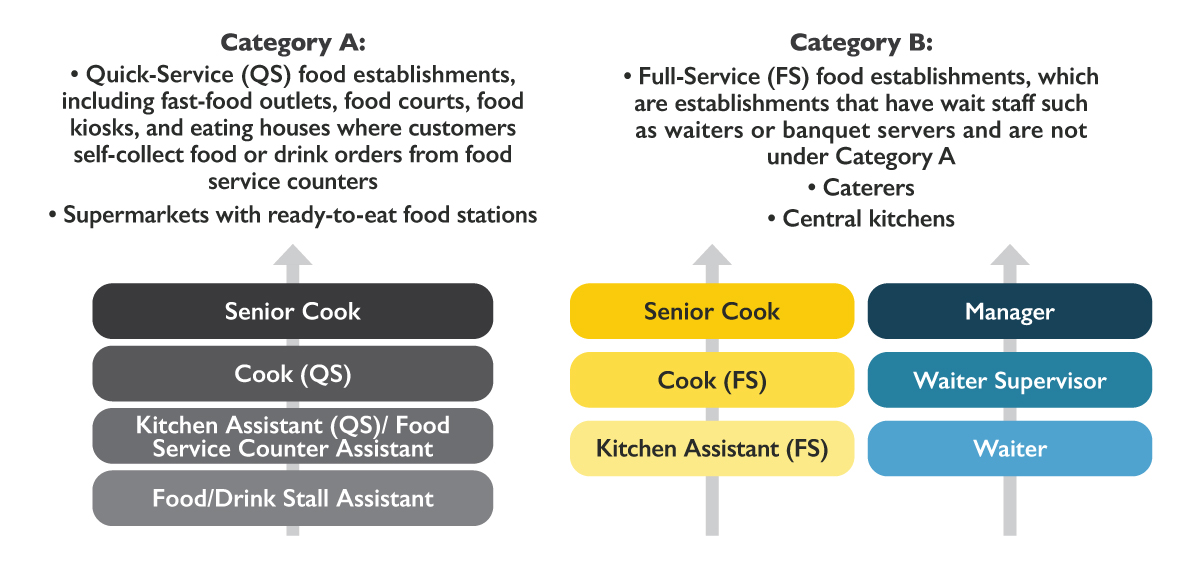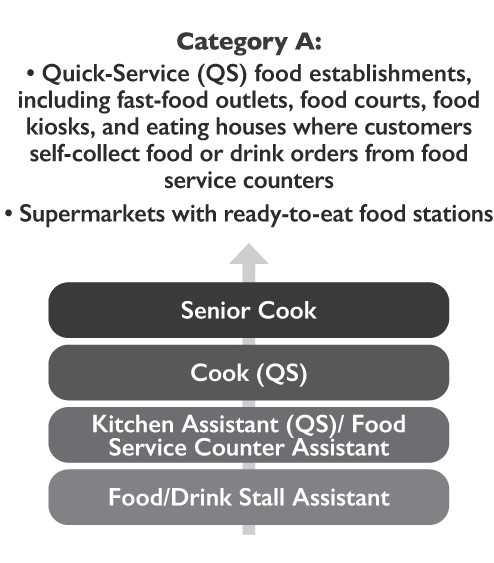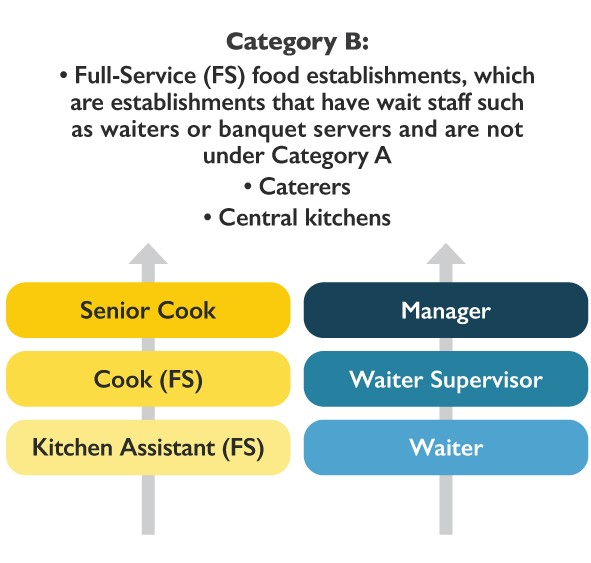Food Services PWM
Progressive Wage Model for the Food Services Sector
The Progressive Wage Model (PWM) for food services workers in Singapore, introduced by the Tripartite Cluster for Food Services Industry (TCF), aims to enhance career sustainability and encourage upskilling.
Singapore Citizens and Singapore Permanent Residents (PR) employed full-time or part-time in Quick Service (QS) and Full Service (FS) food establishments can benefit from this initiative. By following various food services training programs and gaining additional skills, employees can see parallel increases in job roles and income, boosting employability and job security while uplifting local talent.
Note: From 1 March 2023, employers must ensure that all food services workers that are Singapore Citizens and Singapore (PR) meet the food services PWM training requirements of attaining at least 2 Workforce Skills Qualification (WSQ) Statements of Attainment from the list of approved WSQ training modules in order to renew existing work passes or apply for new work passes.
Moreover, employers are given the following grace periods to comply with the training requirements:
- For new hires: Six months from the new hire’s date of employment
- For existing employees: Up till 29 February 2024
In line with support of the Progressive Wage Model (PWM), NTUC LearningHub offers a comprehensive suite of modules, which will enable food service companies and their staff to meet the mandatory training requirements. Here’s a comprehensive guide:
Frequently Asked Questions (FAQs)



Features of the Food Services Sector Wage Model:
- Specific training requirements that tap on the Skills Framework for food services ensuring that workers are equipped with the skills needed to carry out their job functions.
- Progressive wages set at each level to ensure that food services workers are paid wages that are commensurate with their skills and productivity.
Since being implemented, PWM sectors have raised wages at a sustainable and meaningful pace, uplifting the livelihoods of lower-wage workers.
For more information, please visit MOM.
By complying with the requirements set by the tripartite cluster for food services, you can ensure your employees receive fair wages and opportunities for career advancement.
This well-structured approach not only enhances productivity, but also helps in attracting and retaining talent, meeting the food services PWM training requirements, and supporting the overall growth of your business.
Moreover as elaborated above, from 1 March 2023, employers must ensure that all food services workers that are Singapore Citizens and Singapore Permanent Residents (PR) meet the food services PWM training requirements of attaining at least 2 Workforce Skills Qualification (WSQ) Statement of Attainment, out of the list of approved WSQ training modules in order to renew existing work passes or apply for new work passes.
Employers are given the following grace periods to comply with the training requirements:
- For new hires: six months from the new hire’s date of employment
- For existing employees: up till 29 February 2024


